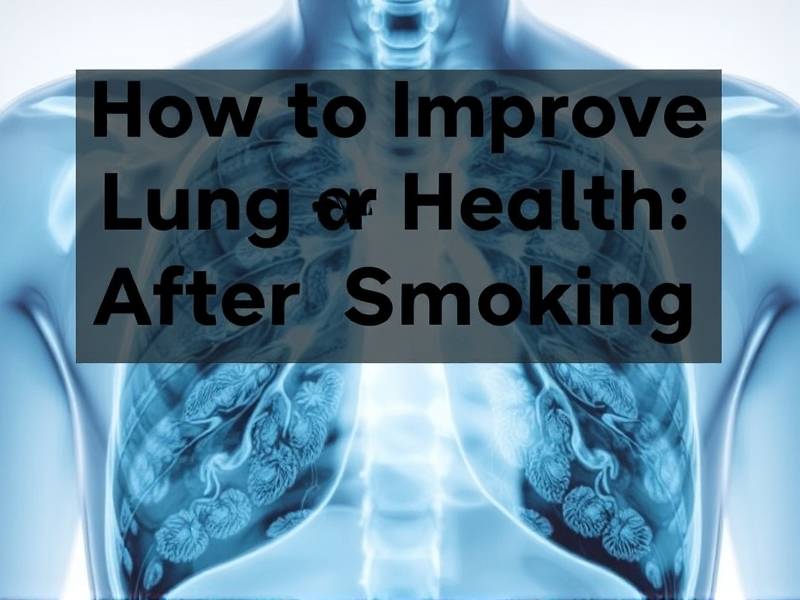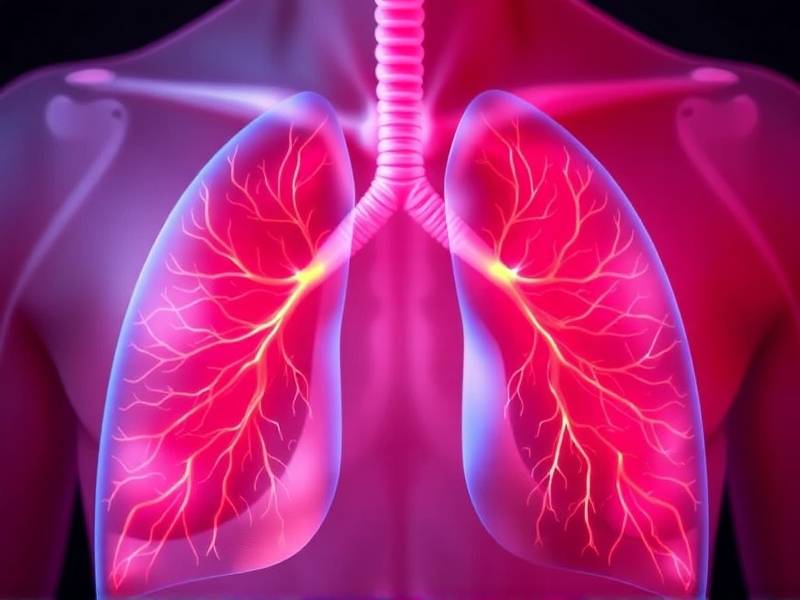How to Improve Lung Health After Quitting Smoking: Effective Strategies and Tips
How to Improve Lung Health After Quitting Smoking: Effective Strategies and Tips
Introduction: Quitting smoking is a significant step towards a healthier life, but it's not just about breaking the habit. It's also about taking proactive measures to improve your lung health. The journey to better lung function doesn't happen overnight, but with the right strategies and tips, you can make substantial progress. In this article, we'll explore effective ways to enhance lung health after quitting smoking.
-
Stay Hydrated: Drinking plenty of water is essential for overall health and particularly beneficial for lung function. Water helps thin mucus, making it easier for your lungs to expel toxins and debris. Aim for at least 8-10 glasses of water per day.

-
Practice Breathing Exercises: Breathing exercises can help improve lung capacity and strengthen respiratory muscles. Practices such as deep breathing, diaphragmatic breathing, and pranayama can be highly beneficial.
-
Increase Physical Activity: Regular exercise promotes better lung function by increasing oxygen flow throughout your body. Activities like walking, cycling, swimming, or any form of cardiovascular exercise are excellent choices.
-
Avoid Exposure to Pollutants: Pollutants such as secondhand smoke, dust, and chemical fumes can harm your lungs even after quitting smoking. Try to minimize exposure by avoiding smoky environments and using air purifiers in your home.
-
Quitting Smoking Strategies: Relapse is common when trying to quit smoking; however, adopting effective strategies can increase your chances of success:
a) Seek Professional Help: Consult with a healthcare provider or a certified smoking cessation specialist who can offer personalized guidance and support. b) Use Nicotine Replacement Therapy (NRT): NRT products like gum, patches, lozenges, or inhalers can help reduce withdrawal symptoms. c) Identify Triggers: Recognize situations that trigger cravings and plan ahead to avoid them. d) Replace Habits: Find alternative activities to replace smoking-related habits like taking a walk or engaging in hobbies.
-
Adopt a Healthy Diet: A balanced diet rich in fruits, vegetables, lean proteins, whole grains, and healthy fats can provide essential nutrients for lung health. Foods high in antioxidants like berries and dark chocolate may also help reduce oxidative stress caused by smoking.
-
Get Regular Check-Ups: Regular medical check-ups are crucial to monitor your lung health after quitting smoking. Your healthcare provider may recommend pulmonary function tests or other diagnostic procedures to assess your progress.

Conclusion: Improving lung health after quitting smoking requires time and effort but is well worth the investment in your well-being. By staying hydrated, practicing breathing exercises, increasing physical activity, avoiding pollutants, adopting effective quitting strategies, maintaining a healthy diet, and getting regular check-ups, you can significantly enhance your lung function over time.
Remember that every small step counts towards better health; take these strategies one at a time and gradually incorporate them into your daily routine for long-lasting benefits.
